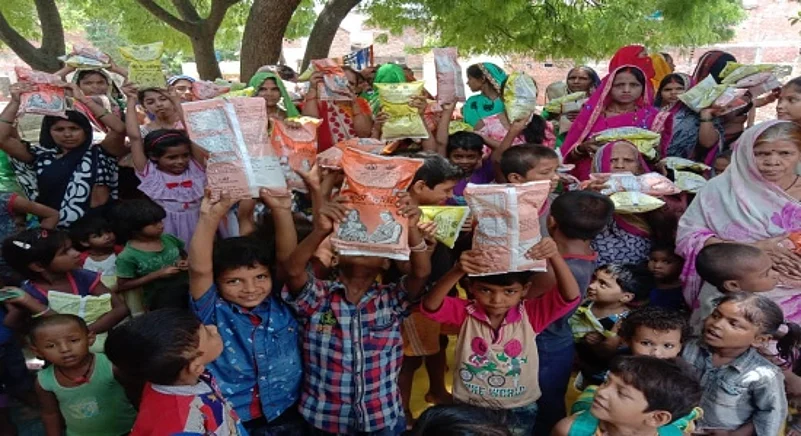September is just a day away. The National Nutrition Month, Poshan Maah, will take off and continue for the whole of September across the country. Smriti Irani, the Union Minister of Women and Child Development, is on her toes. She is distributing POSHAN Abhiyaan Award to states, districts, taluqs and grassroots functionaries for a job well done. She is travelling 3,500 kms, from Shillong to Thiruvananthapuram, without missing a beat—to monitor, supervise and review nutrition schemes underway.

And everywhere, she is spreading the good word: the five pillars of the POSHAN Abhiyaan, Prime Minister Narendra Modi’s flagship scheme, to make India malnutrition-free: the importance of nutrition in the first 1000 days of life, detection and right treatment of anaemia and diarrhoea. personal hygiene and sanitation, and Poushtik Ahaar or locally available nutritious food.
States and union territories are gearing up, too: for some, the theme will be “supplementary diets,” to fulfil the daily minimum nutritional requirement of children. Somewhere else, newborns, new mothers, pregnant women and their family members will congregate at anganwadi centers and messages on cleanliness and health will be conveyed through songs.

The first rice-eating ceremony of babies will be celebrated elsewhere, while mothers will be drawn into conversations on breastfeeding, seasonal fruits and green-leafy vegetables in the diet. Not just infants, some are getting ready to focus on men, some on adolescents. And across schools, construction of nutrition gardens will start in right earnest.
Sanitation, health and cleanliness drives will be taken up twice every week across villages. On September 13, mothers will bring nutritious home-cooked foods, made of for their children, six months to six years, at the local anganwadi centers—to celebrate Child Suraksha Utsav.

“Last year, nearly 45 crore citizens participated in the celebrations. The Centre is aiming to bring ten crore beneficiaries under the National Nutrition Mission,” says Irani.


























